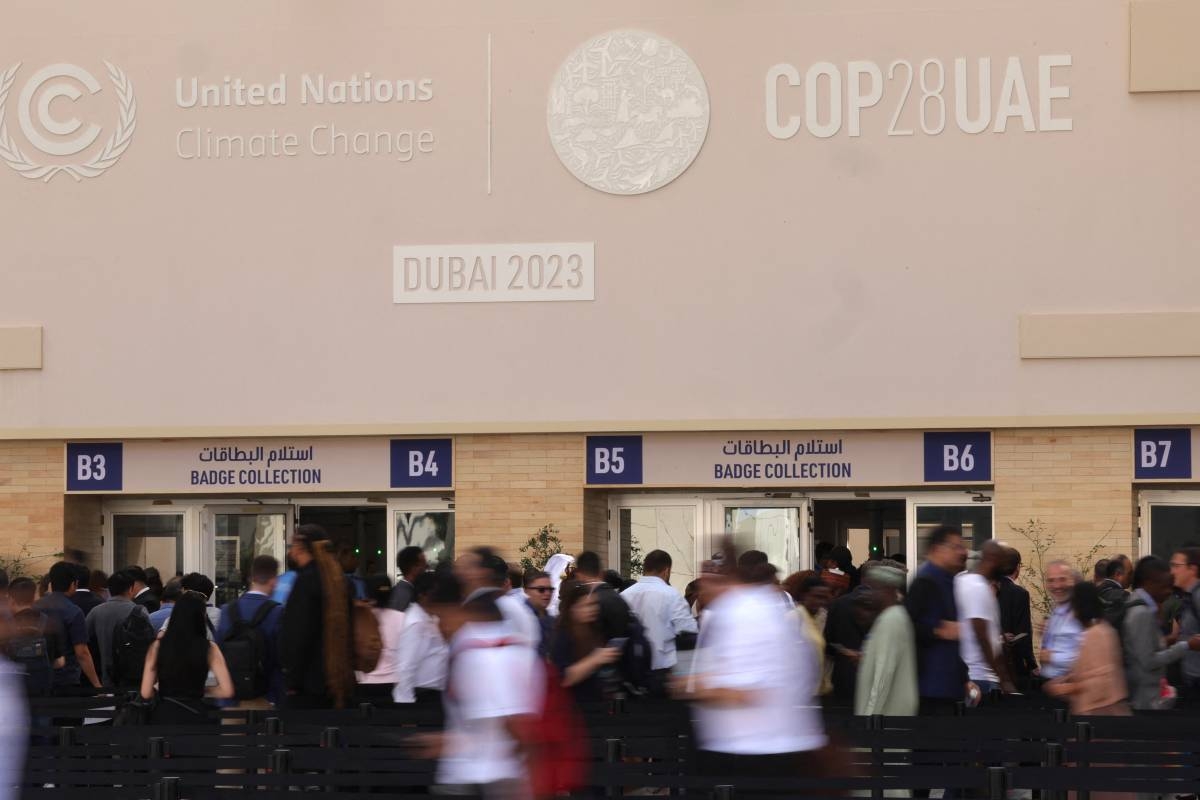DUBAI: The UN released the latest draft of a global climate agreement on Tuesday, presenting a range of options regarding the future of fossil fuels. This issue has become the focal point of discussions at the COP28 UN climate talks in Dubai, with divisions around their future dominating the conference.
The second version of the negotiating text has put forward three options, setting the stage for a grueling showdown as representatives from nearly 200 nations strive to reach a final agreement.
The first option proposes “an orderly and just phase out of fossil fuels,” which is considered the toughest stance and is seen as essential by low-lying island nations threatened by rising sea levels.
The second option calls for accelerated efforts to phase out projects that lack the means to capture and store emissions. Additionally, it urges a rapid reduction in fossil fuel use to achieve carbon neutrality in global energy production by 2050.
The third option, which is supported by oil giant Saudi Arabia and China, suggests having “no text” at all regarding the future of fossil fuels. This position represents a significant divergence from the previous version, which only mentioned the options of a phase-out or a weaker phase-down.
Saudi Arabia’s energy minister, in an interview with Bloomberg on Monday, expressed his strong opposition to a phase-down, indicating the contentious nature of the upcoming debate on this issue.
The broad language on fossil fuels in the draft “prepares the ground for intense future deliberations,” according to Harjeet Singh, a campaigner with the Climate Action Network.
This draft serves as the foundation for the negotiations that will unfold in the coming days, with a final text expected, in theory, by December 12.
It is important to note that this draft is a formal response to the “global stocktake,” a critical report published in September that highlighted the insufficient actions taken by the world to address the climate crisis.
As the fate of fossil fuels continues to be a thorny issue, it is crucial to consider the implications of each option on a global scale. The first option, an orderly and just phase-out of fossil fuels, is supported by low-lying island nations that face the immediate threat of rising sea levels. For them, the urgency to transition to renewable energy sources is a matter of survival.
The second option, which emphasizes the need to rapidly reduce fossil fuel use and achieve carbon neutrality by 2050, recognizes the importance of taking swift action to mitigate the impacts of climate change. This option acknowledges that capturing and storing emissions is crucial for projects that are unable to phase out completely in the short term.
On the other hand, the third option, supported by Saudi Arabia and China, advocates for no text on the future of fossil fuels. This position raises concerns among environmental activists who argue that without clear guidelines, the transition to renewable energy may be hindered, leading to further delays in addressing the climate crisis.
It is evident that the fate of fossil fuels is not only a matter of environmental concern but also has significant geopolitical implications. Countries heavily reliant on fossil fuel exports may resist a swift phase-out, as it could have severe economic consequences. Balancing the urgent need to address climate change with the economic realities of fossil fuel-dependent nations will be a complex challenge.
As the negotiations progress, it is essential for representatives from all nations to engage in constructive dialogue and find common ground. The global community must work together to develop a comprehensive climate agreement that ensures a sustainable future for all.
The UN climate talks in Dubai provide a crucial platform for countries to come together and address the pressing issue of climate change. By considering the various options on the table and engaging in meaningful discussions, nations can pave the way for a greener and more sustainable future.
Ultimately, the decisions made at COP28 will shape the trajectory of global efforts to combat climate change. It is imperative that these decisions reflect a shared commitment to protect the planet and secure a better future for generations to come.
Source: The Manila Times







